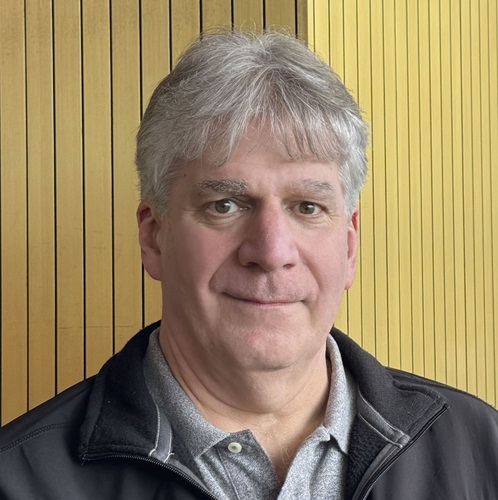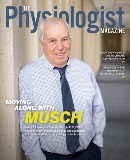Under the Microscope: Inquiring Minds
This researcher has leaned into his inquisitiveness since his competitive swimming days.
 Joseph Brozinick, PhD, directs a preclinical pharmacology lab at Eli Lilly and Company in Indianapolis in the Endocrine Division as an executive director in the Cardiorenal Group. He earned his undergraduate degree in biology from Indiana University
of Pennsylvania, a master’s in biology from East Carolina University and his PhD in exercise physiology, biology and pharmacology from the University of Texas at Austin. He did his postdoctoral training at the National Institutes of Health and at
the University of Pennsylvania.
Joseph Brozinick, PhD, directs a preclinical pharmacology lab at Eli Lilly and Company in Indianapolis in the Endocrine Division as an executive director in the Cardiorenal Group. He earned his undergraduate degree in biology from Indiana University
of Pennsylvania, a master’s in biology from East Carolina University and his PhD in exercise physiology, biology and pharmacology from the University of Texas at Austin. He did his postdoctoral training at the National Institutes of Health and at
the University of Pennsylvania.
CURIOUS KID. I have always been fascinated with the mysteries of biology and figuring out how things work. I was involved in sports and was a competitive swimmer in high school and college. This enticed me to understand both how the human body responds to exercise and how the various organ systems responses are coordinated on a physiological level. This innate curiosity led me to major in biology as an undergraduate and pursue a PhD in pharmacology and exercise physiology.
A NEAR MISS. My near lab mishap came from my graduate work at the University of Texas. My research involved isolating plasma membranes from rat skeletal muscle after exercise, which required using another principal investigator’s swinging bucket rotor and ultracentrifuge across campus. One day, without noticing, I hung one of the rotor buckets by only one of the two hooks that attached it to the rotor and started the centrifuge. The bucket should have flown off the rotor and destroyed the centrifuge, but somehow managed to stay in place. When I returned and saw the rotor, I thanked the science gods that I had not destroyed someone else’s centrifuge and had to enter the federal witness relocation program!
NOBEL-WINNING LEGACY. I would have liked to meet A.V. Hill. When he was alive, one of the biggest unknown questions in physiology was the regulation of muscle contraction. Hill did some pioneering work on frog muscle to show that contraction released heat and required energy. He also came up with a model to describe contraction, which was not entirely correct but did further our understanding of muscle physiology. (Hill shared the 1922 Nobel Prize for Physiology or Medicine with Otto Meyerhof.)
TIME TO PONDER. My favorite part is designing experiments and looking at the data. I also enjoy having time to read scientific literature and brainstorm new ideas for drug targets that we can use in the lab because it engages the creative side of our brains (which we all have) and gives me a sense of accomplishment. My least favorite part: going to meetings. While this is a necessary part of all our jobs, I find meetings to be boring and counterproductive to creativity.
CRITICAL NEED FOR PHYSIOLOGY. The biggest misconception about physiology is that it is an unnecessary part of science, which is far from the truth. While it is easy to find cell and molecular biologists, it is exceptionally difficult to find people who excel at in vivo physiology. Understanding the breadth of human diseases requires knowledge of physiology to fully appreciate the coordinated interactions between the various organ systems. As a society, we need to do a better job of pointing this out to trainees and their mentors.
Do you know someone we should meet? Email us at tphysmag@physiology.org and tell us more.
This article was originally published in the May 2024 issue of The Physiologist Magazine. Copyright © 2024 by the American Physiological Society.
The Physiologist Magazine
Read the Latest Issue
Don’t miss out on the latest topics in science and research.
View the Issue Archive
Catch up on all the issues of The Physiologist Magazine.
Contact Us
For questions, comments or to share your story ideas, email us or call 301.634.7314.


